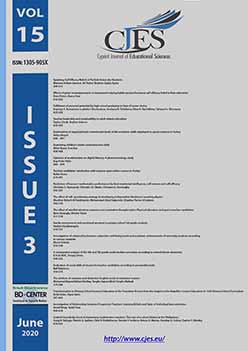The attrition of common and distinctive English words in translator trainers
The attrition of common and distinctive English words in translator trainers
Author(s): Mohamad Djavad Akbari Motlaq, Tengku Sepora Binti Tengku Mahadi,Subject(s): Education, Translation Studies
Published by: Birlesik Dunya Yenilik Arastirma ve Yayincilik Merkezi
Keywords: Contextualization; Attrition; Common words; Distinctive words; De-contextualization;
Summary/Abstract: This paper embodies a study into the attrition rate of a translator educator in the event of the occurrence of common and uncommon vocabulary in the translation process. The study was conducted on 30 Iranian male translator educators who have been detached from translation practice for long chronological periods of time upon completion of their teacher training courses. They were chosen through purposive testing among 100 Iranian male translator educators from three areas in Iran namely Mashhad, Torbat-e-Heydarieh, and Tehran. Their age runs somewhere in the range of 25 and 35. The tool comprised one translation errand. The assignment comprised 20 items out of common words and 20 items out of uncommon vocabularies that were assigned in a translation setting. Results demonstrated that the attrition rate gradually expanded as the chronology of not being attached to translation expanded. This means that as the translation practitioner becomes a trainer, with less practice translation attrition occurs. Additionally, it was discovered that the attrition rate in contextualized text is not as high as for common words in comparison to the uncommon words, also it applies to the decontextualized text. This accordingly shows that the context and the level of familiarity with vocabularies in a text have influence on the level of attrition rate in translation. This study also indicates that uncommon words are more resilient to attrition than common words in translation settings.
Journal: Kıbrıslı Eğitim Bilimleri Dergisi
- Issue Year: 15/2020
- Issue No: 3
- Page Range: 575-586
- Page Count: 12
- Language: English

